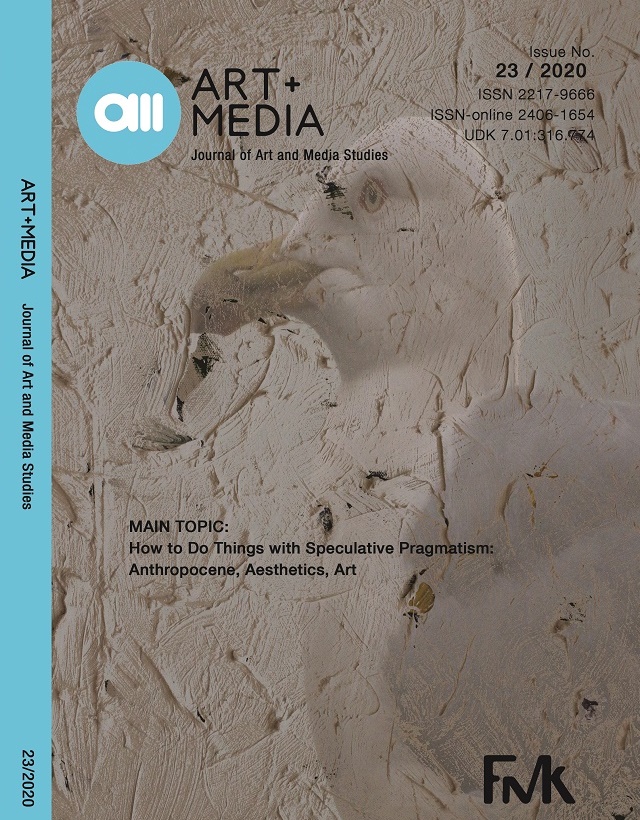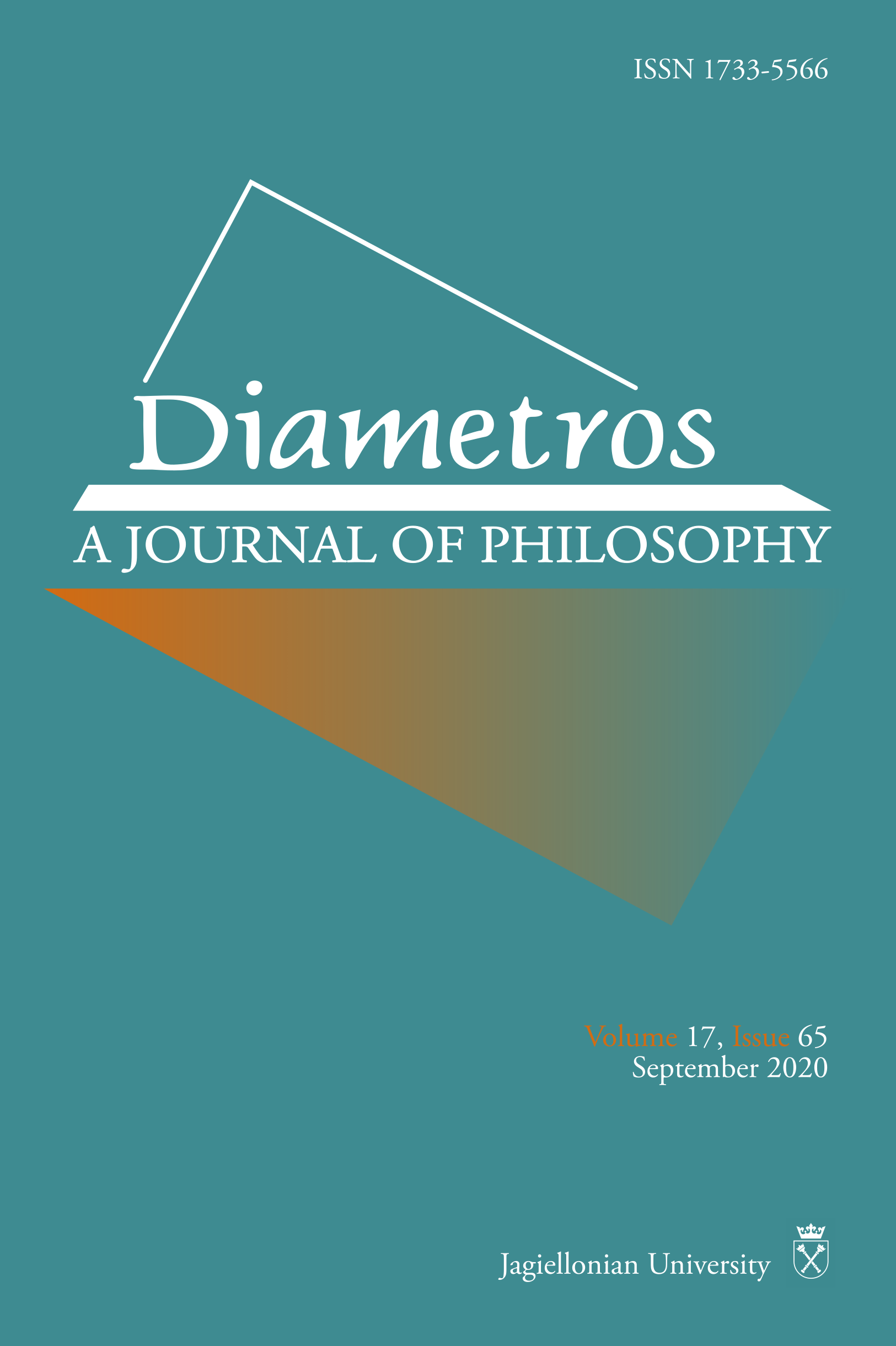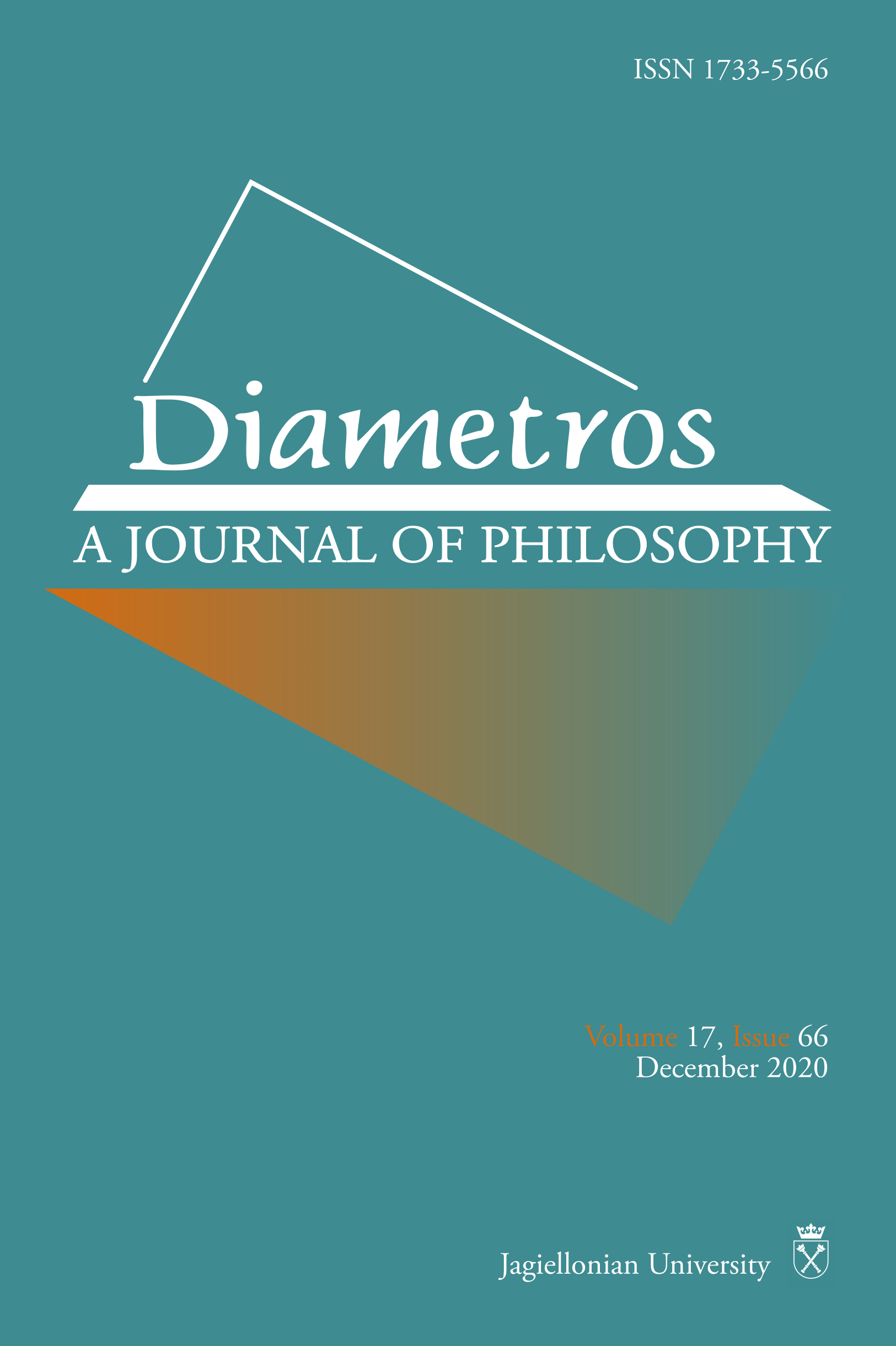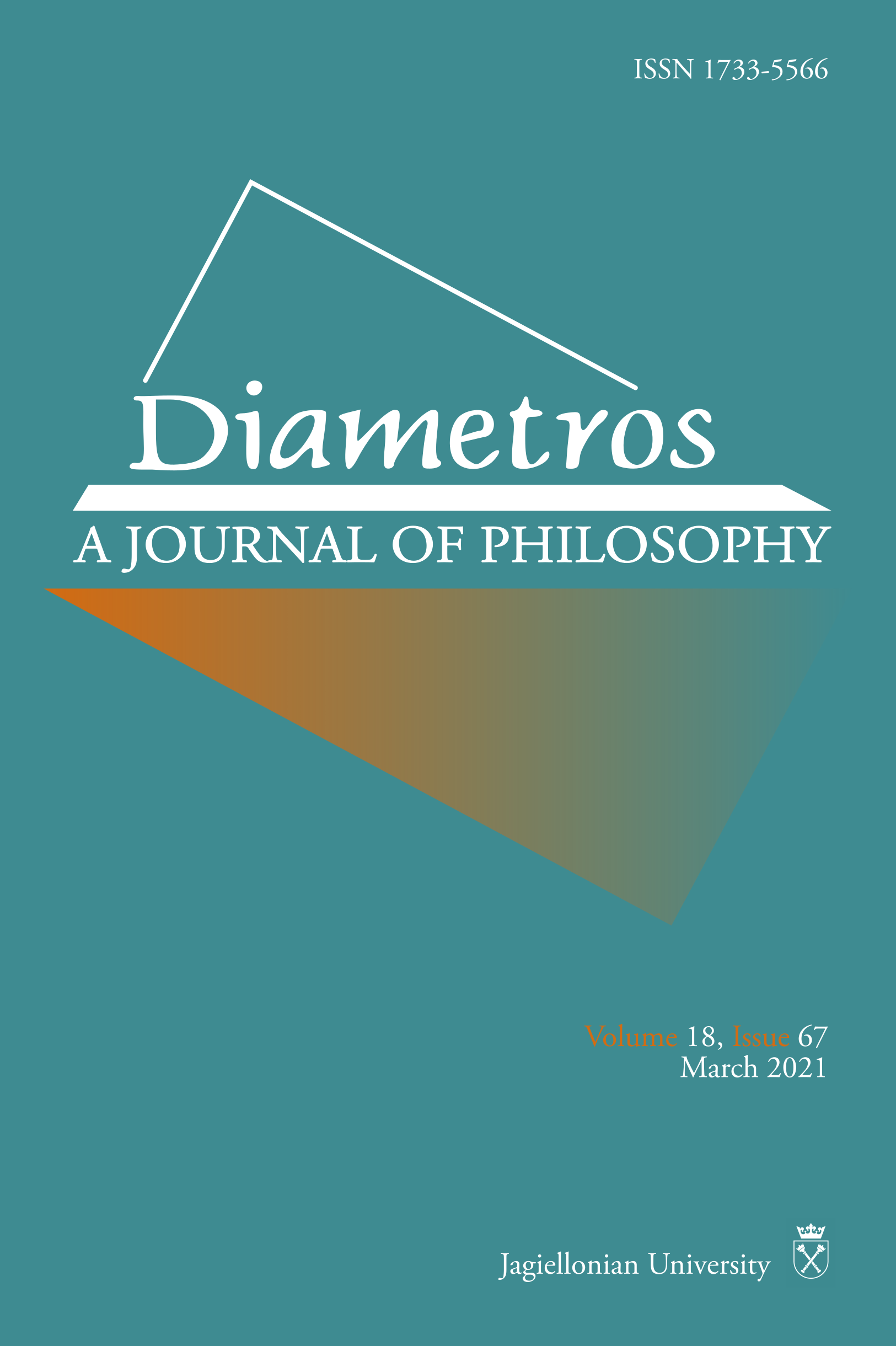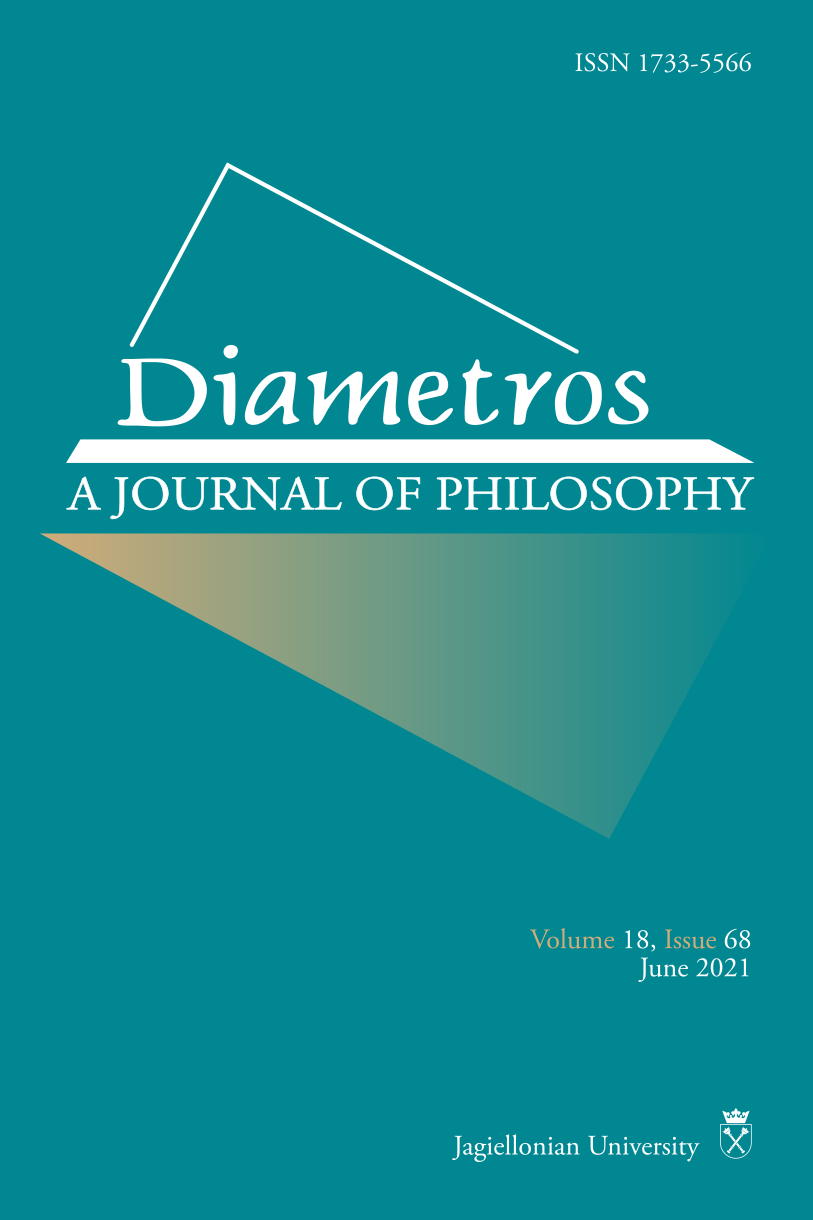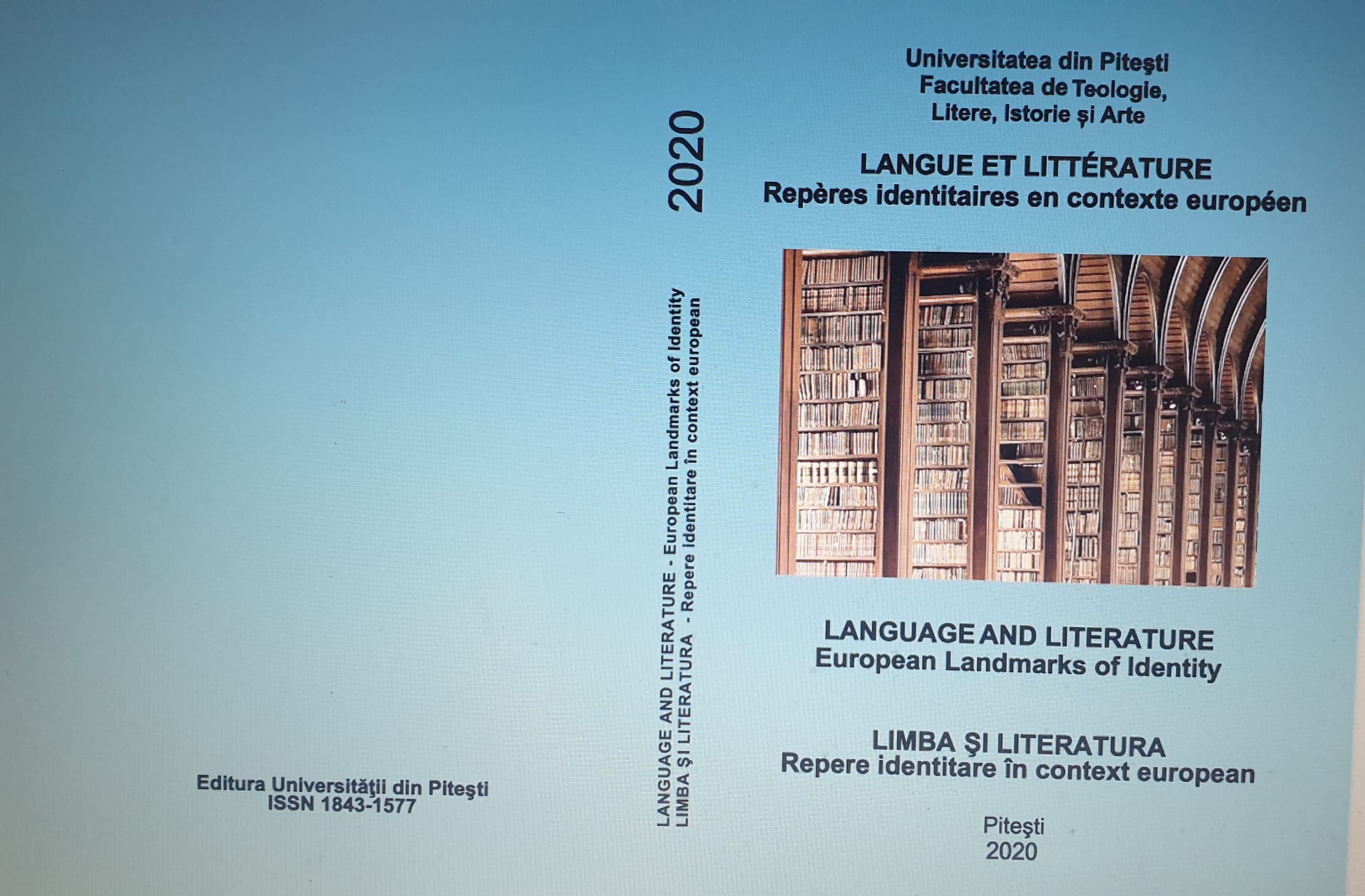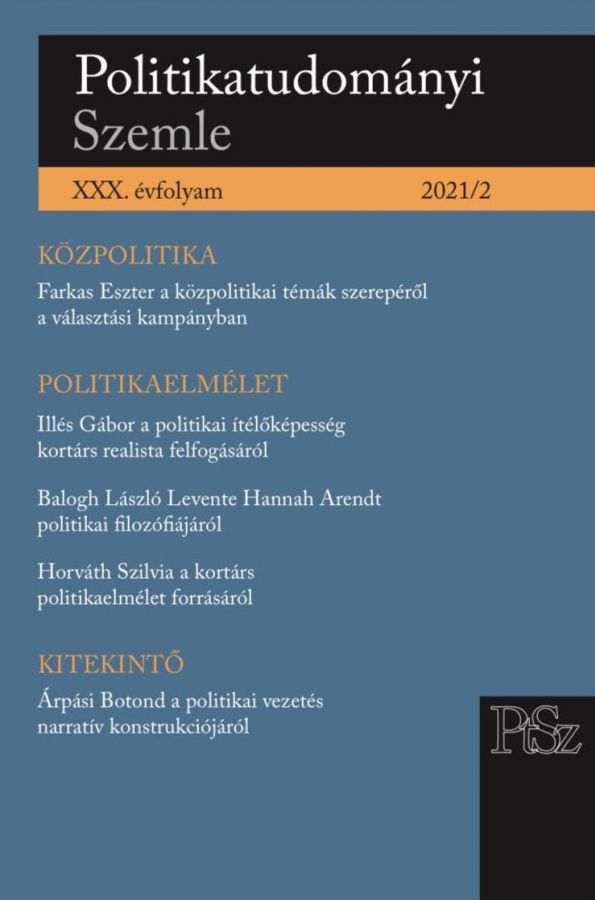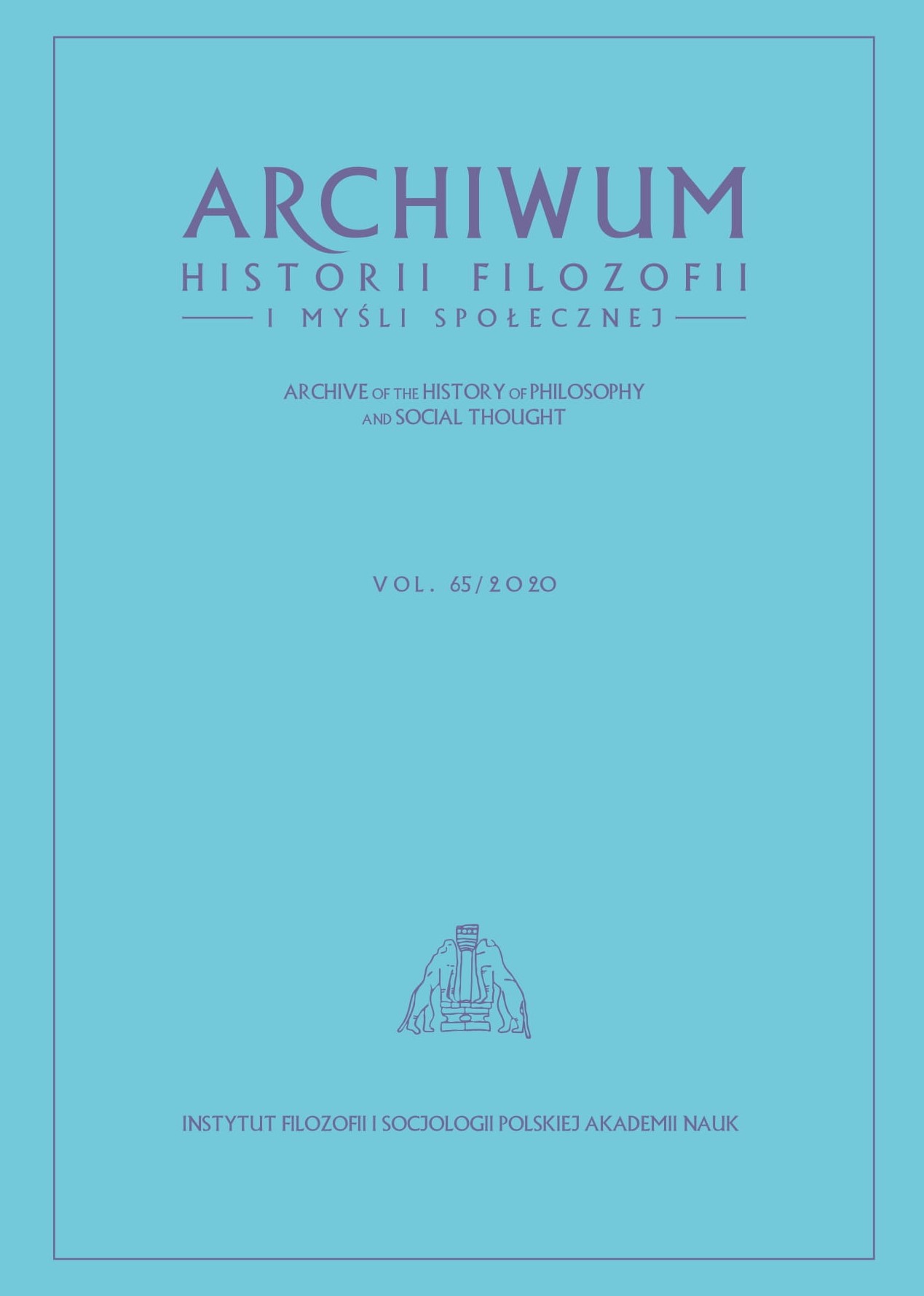Author(s): Seweryn Blandzi / Language(s): English
Issue: 65/2020
Gorgias’s treatise On the non-Being or on Nature is available to us in two perfect reports by Aristotle and Sextus Empiricus. Unfortunately most translators and commentators, who reduce the verb estin to “exist” render the entire treatise nihilistic. When Gorgias says ouden estin, which means that “nothing can be said to be”, that “no thing is” but not that “nothing exists”. In this approach, we have an erroneous treatment of esti as an absolute existential predicate, which leads to a complete nullification of all reality. Plato’s considerations in Cratylus, Theaetetus, and Timaeus on the essence of variabilism proved extremely helpful for our current analysis of the sense of Gorgias’s treaty. Th e verb einai/esti together with menein, emmenai, pelein, estanai/estos are stative verbs that designate constancy, eternity of an object, something that is immutable, unlike dynamic, processual verbs such as “become”, which reflect the dual order of reality. Plato, who presented Heraclitus’s claim that “everything flows” and “nothing persists” (ouden menei) confirms that einai and menein are synonymous. Th ese verbs are not applicable to things of this world, as those are in constant flux. Things not so much “are” as they “become”. As Plato says (Timaeus 28a), “What is it that always is, but never comes to be, and what is it that comes to be but never is?” (transl. R. Wakefield). In his polemic with Eleatism, Gorgias was inspired by fragment B6 of Parmenides’s poem: “Being persists […] nothing it is not” (t’eon emmenai … meden d’ouk estin). Gorgias’s position is not an open attack on Parmenides’s transcendent Truth-Being, but a claim of the non-cognizability of such an object. Gorgias objects to the elimination of the non-being of becoming as absolute Non-being, and argues that in earnest in favor of relative non-Being qua something different and becoming as the only reality, which through comparison with absolute Being is not[1]this-Being, but not non-relative Non-being, as the Eleatics seem to have claimed. Gorgias᾿s position appears to be the apology of non-Being which exists, that is of becoming; at the same time, it is a direct charge on the substantiality of things in general. Gorgias᾿s position can be recapitulated as nothing is sc. true, there is no truth-criterion in things, therefore, everything is opinion. It is reinforced further by meontological, i.e. anti-Eleatic emphasis: no thing is something, because it is not even one (oud’ hen). Therefore, nothing is being (substance), because everything is becoming. Th us the title of Gorgias᾿s treatise can be treated as an 262 Seweryn Blandzi antithesis to that of Melissus᾿s would emphasize the “non-beingness” of nature, the nonsubstantiality of things. Therefore, if Gorgias᾿s text was polemical, and it questioned (while at the same time maintaining the positivity of becoming as non-Being) only the immutability of things, and thus we cannot speak of the existence or the cognizability of natures/essences of things (pragmata), which “no more are [true] than are not”, and with respect to which “no one can intellectually grasp the same thing as someone else”. In his theory of Ideas, Plato aimed at a preservation of phenomena (sodzein ta phainomena) it was also Gorgias’s idea, but without the ontological grounding
More...
